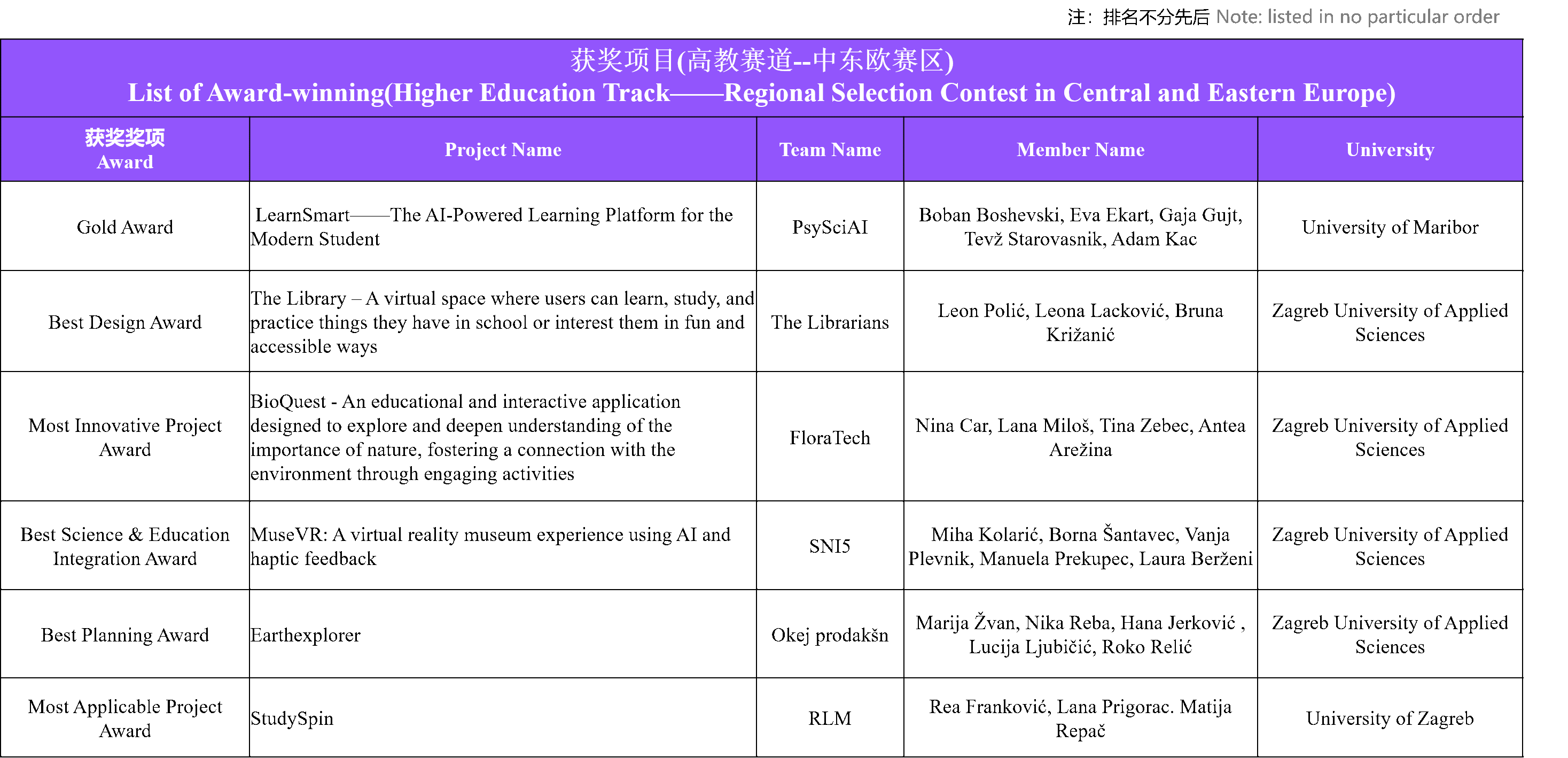[GCD4FE 2025] The Regional Selection Contest in the Central and Eastern Europe Region of the Higher Education Track Successfully Held in Croatia
date:2025-07-07 17:48author:adminsource:Smart Learning Instituteviews:
From June 17th to 18th, 2025, the Regional Selection Contest in the Central and Eastern Europe Region of the Higher Education Track of the 8th Global Competition on Design for Future Education (GCD4FE) were successfully held at the Zagreb University of Applied Sciences, Croatia. The event was jointly organized by Beijing Normal University (BNU) and the UNESCO Institute for Information Technologies in Education (UNESCO IITE), and co-hosted by the Zagreb University of Applied Sciences (TVZ), the Smart Learning Institute of Beijing Normal University(SLIBNU), and the UNESCO Chair on Artificial Intelligence in Education.
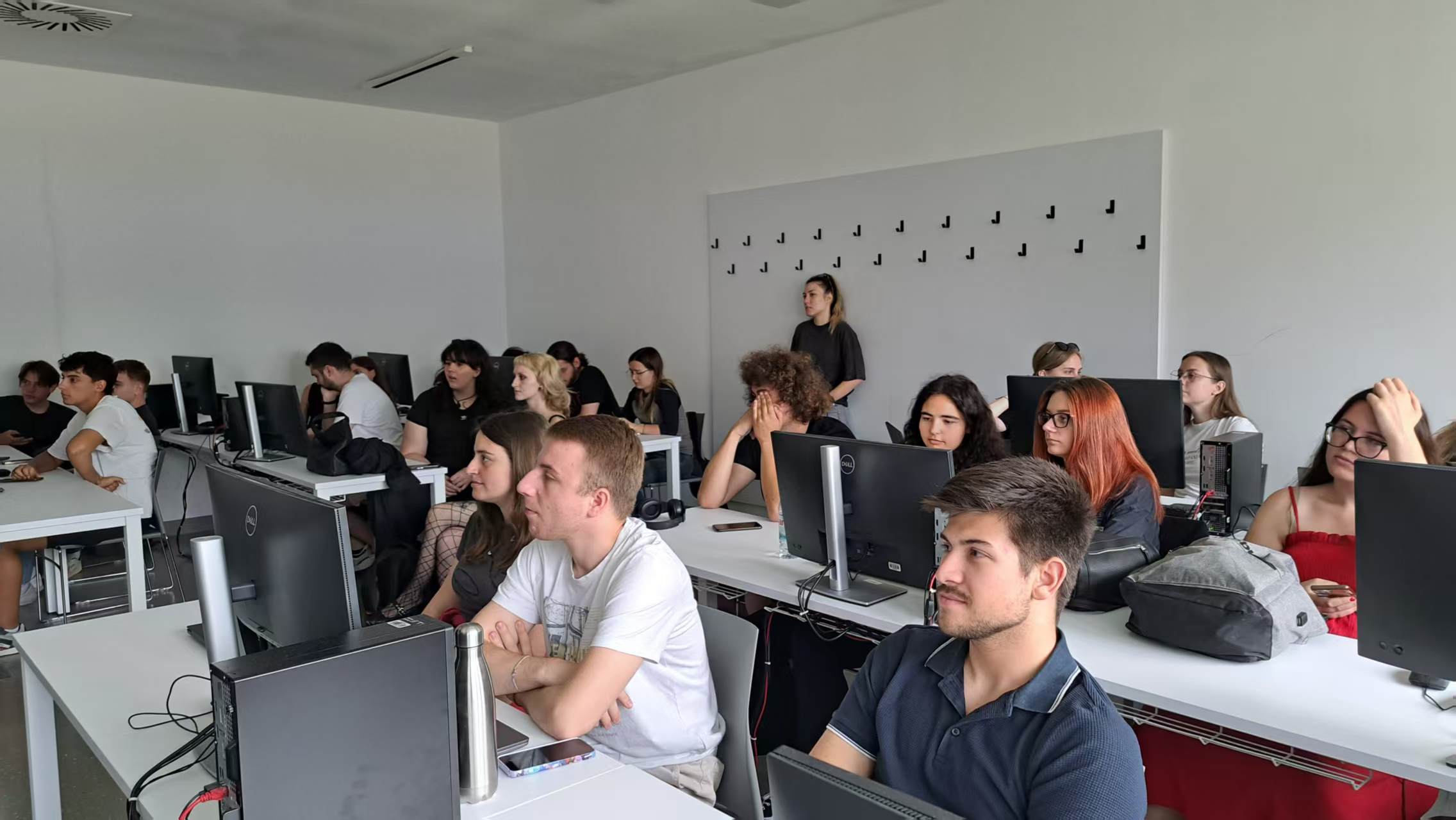
Since its launch, the contest has garnered widespread attention from universities faculty members and students across Central and Eastern Europe, attracting participants from Croatia, Hungary, Slovenia, and other countries. Outstanding teams from University of Zagreb, Zagreb University of Applied Sciences, University of Debrecen, University of Szeged, and University of Maribor emerged as pre-finalists with their innovative projects. Over the two-day creative journey, participants engaged in various activities including the opening ceremony, training session, topic report, project design, and roadshow report. Their solutions addressed diverse educational challenges through approaches like virtual learning spaces, adaptive learning assistants, and interactive educational tools, combining technological sophistication with humanistic considerations.
The opening ceremony was hosted by Vesna Uglješić, Senior Lecturer at TVZ. During the training session, Zhang Yifan, member of the UNESCO Chair on “Artificial Intelligence in Education,” shared practical presentation techniques and introduced a series of useful AIGC tools through case studies and experience sharing. He encouraged participants to transcend the conventional perception of AI as mere tools and to organically integrate creative concepts with technological applications. Under the guidance of local mentors, teams actively engaged in topic report and exchanged ideas with each other, continuously refining their project to achieve comprehensive improvements from conceptual frameworks to implementation specifics.
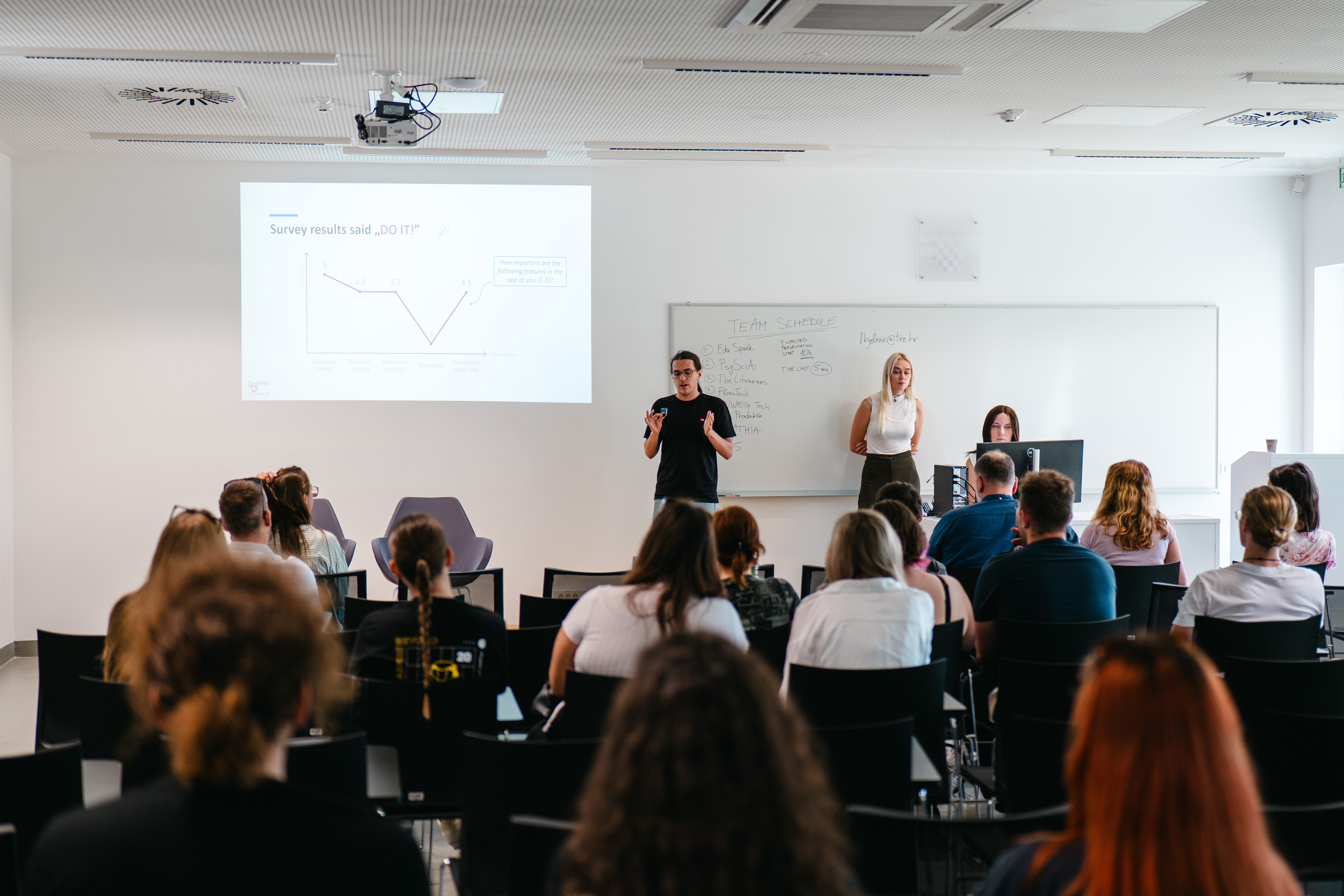
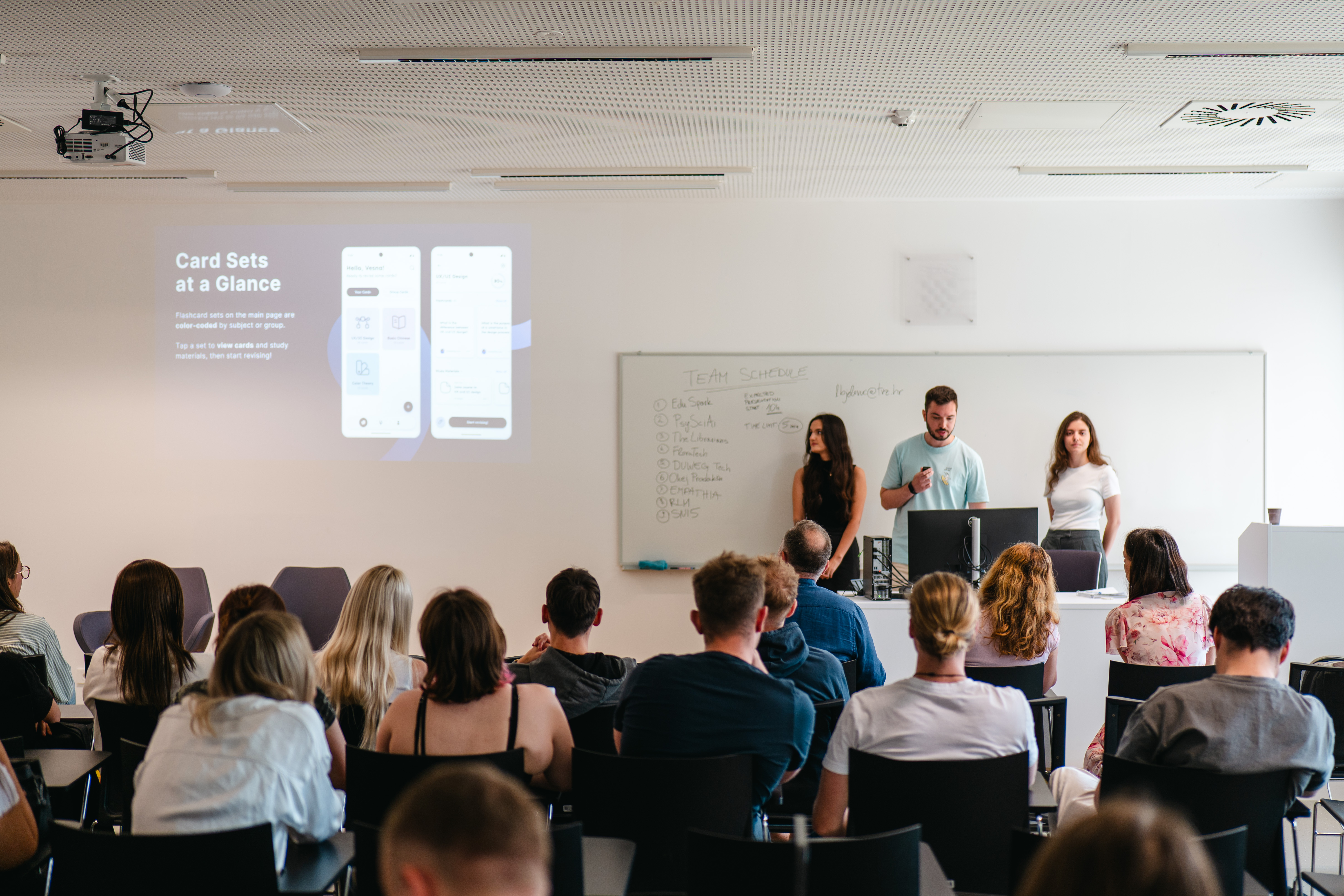
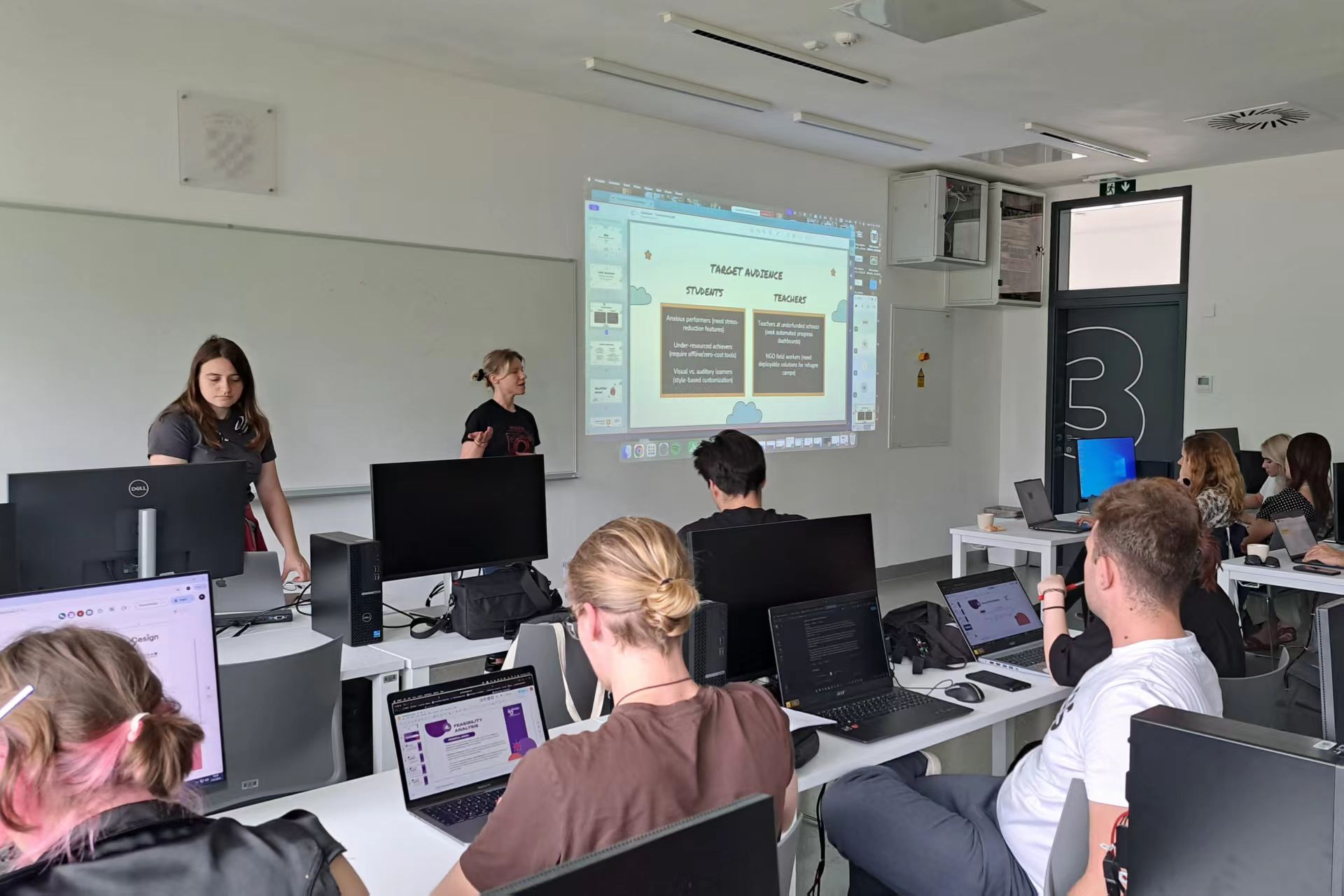

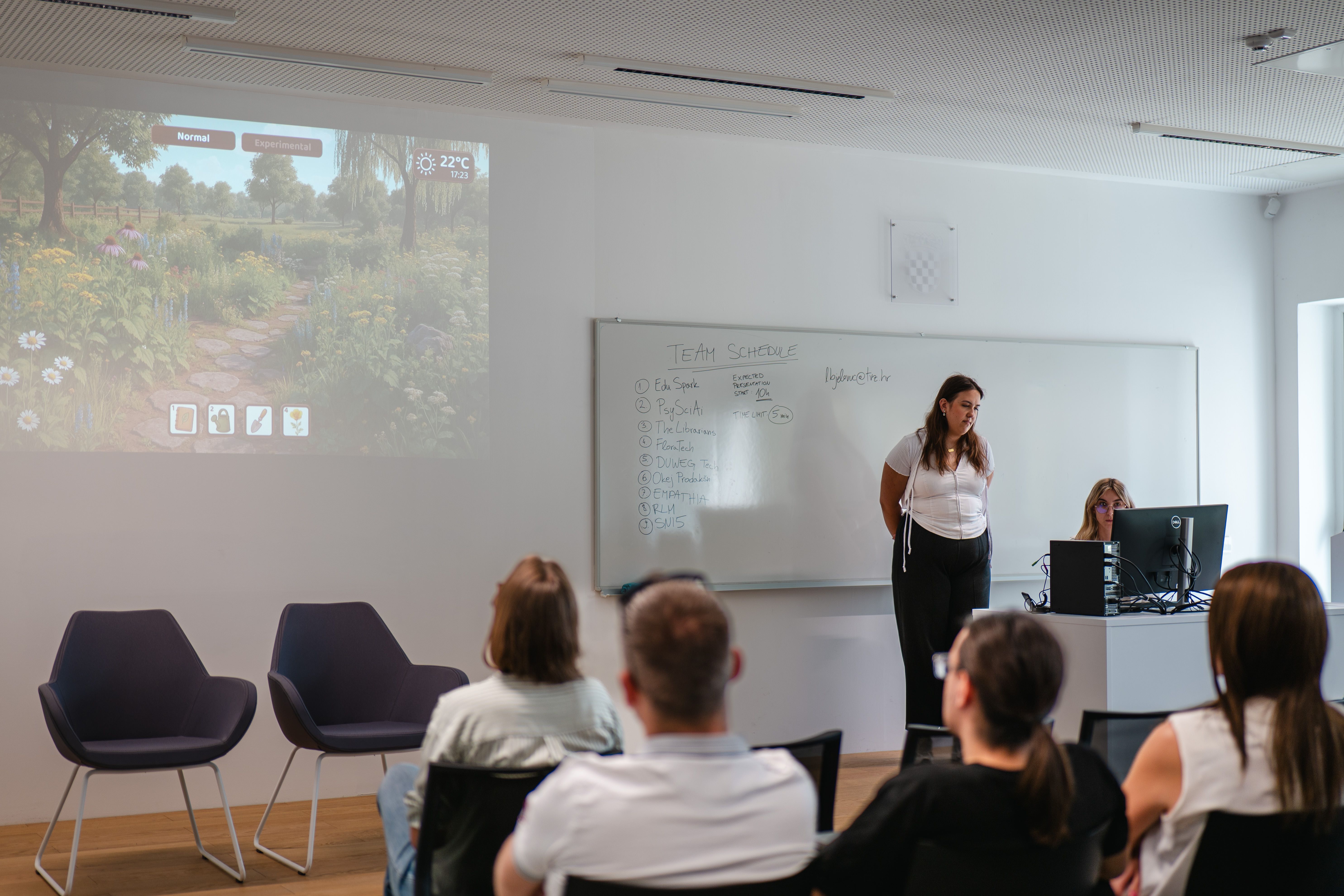
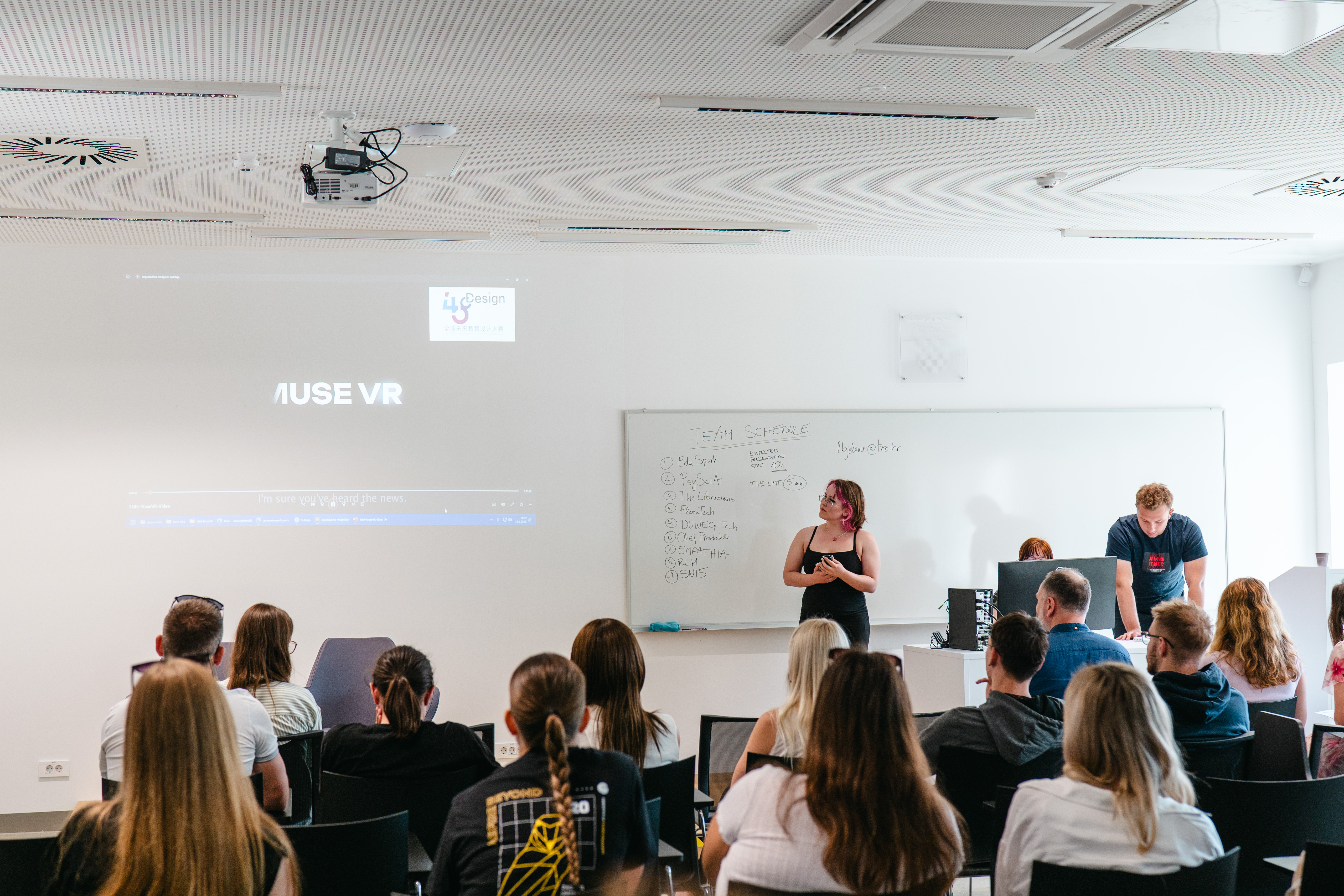
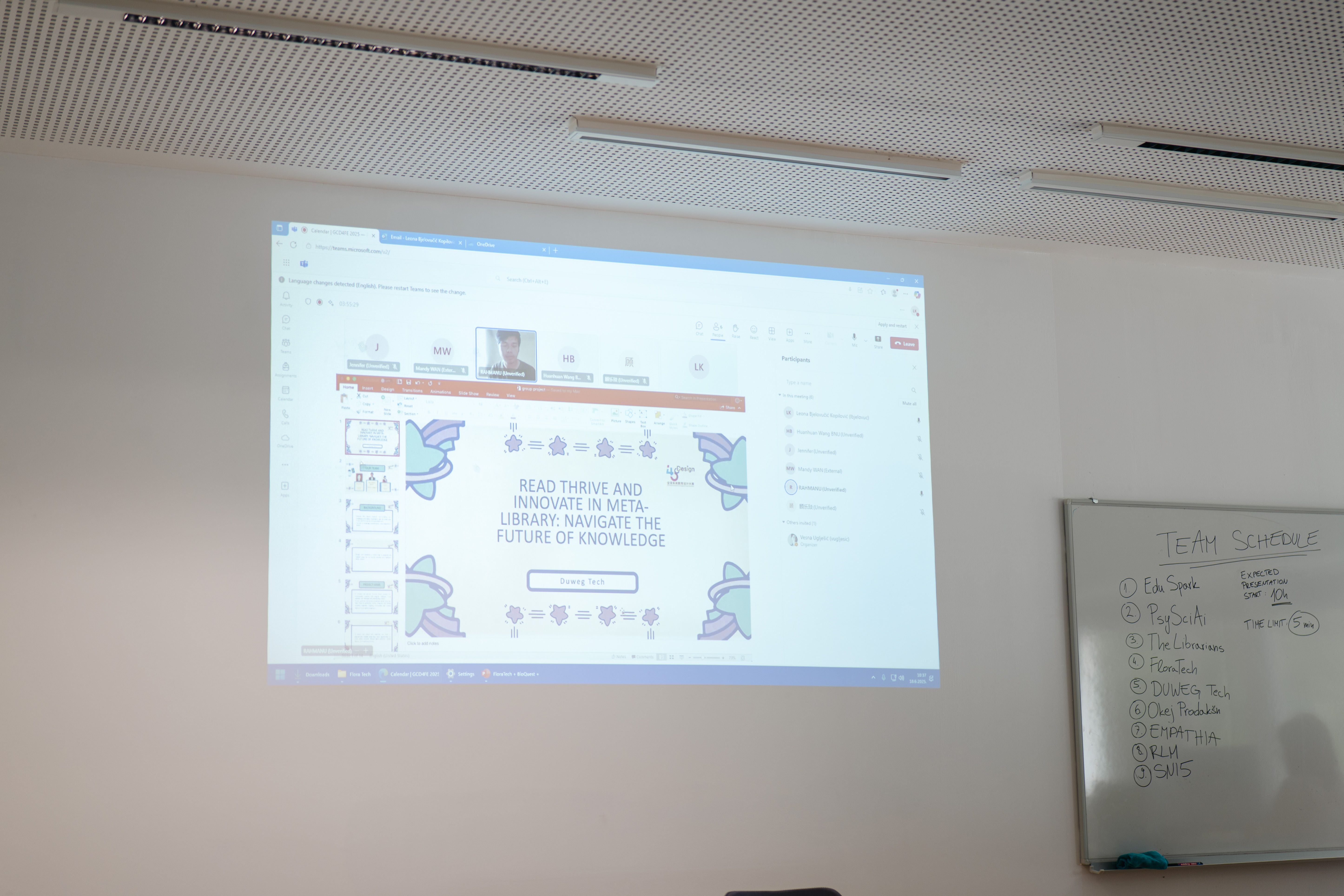
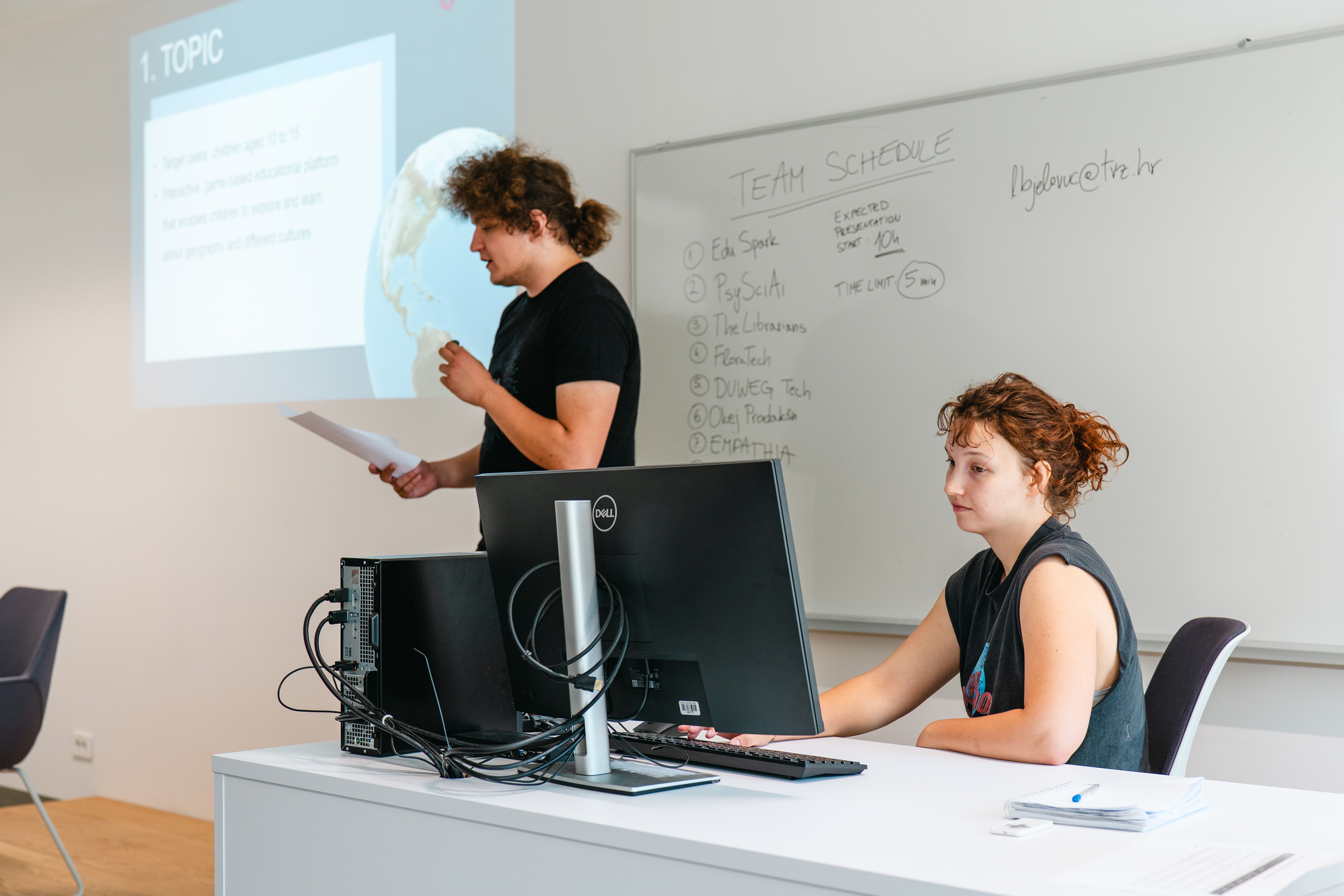
The roadshow presentations on the 18th brought the event to its climax. Teams showcased their works, featuring AI-powered personalized learning solutions, immersive educational experiences blending virtual and real elements, and knowledge acquisition platforms transcending temporal and spatial limitations. Through dynamic project demonstrations and case analyses, participants vividly illustrated the concept of technology-for-good in educational innovation. The judging panel included Wang Huanhuan, Focal Contact of UNESCO Chair on Artificial Intelligence in Education and Assistant Research Professor at BNU; Mia Čarapina, Assistant Professor of Computer Science at the TVZ; Vedran Kasap, Associate Professor at School of Design, University of Zagreb; and Maja Pušnik, Assistant Professor at Faculty of Electrical Engineering and Computer Science at the University of Maribor. The judges praised the entries for their integration of technology and humanistic values, noting how they enhanced teaching efficiency while prioritizing inclusive and warm learning experiences, thereby providing valuable practical insights for building a future educational ecosystem that is intelligent, personalized, and human-centered.
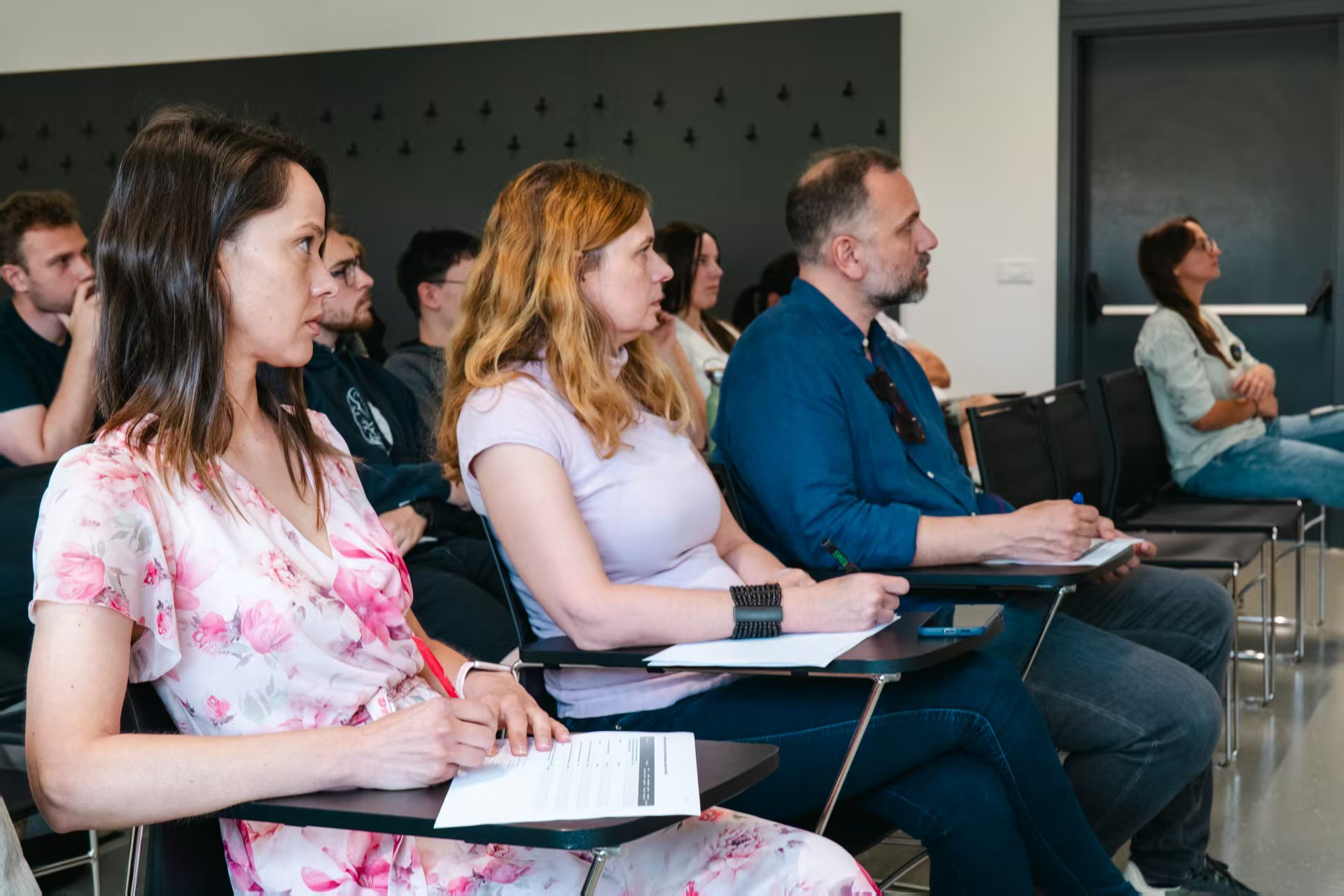
After a fierce competition, the Regional Selection Contest in the Central and Eastern Europe awarded the Gold Award, along with several other honors including the Best Design Award, the Most Innovative Project Award, Best Science & Education Integration Award, Best Planning Award, and Most Applicable Project Award.
